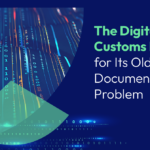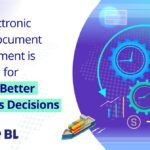we are looking back at an amazing year. Just to mention a few highlights:
-
- 1. We welcomed a new CEO and a Chief Strategy Officer – executives with cybersecurity, digital transformation and sustainable supply chain domain expertise
-
- 2. We developed a new strategy for Wave BL focused on collaboration, customer experience and value creation beyond replacing paper
-
- 3. Our platform issued more than 150,000 eBLs in 2022
-
- 4. Our eBLs are being issued and transferred across 90+ countries
-
- 5. Our partners include market leaders in ocean shipping – MSC, ZIM, Hapag Lloyd and ONE
-
- 6. We designed new product offerings for financial institutions and logistics companies
-
- 7. We unveiled a new pricing model to support our growth strategy
-
- 8. We expanded our onboarding services beyond English and Hebrew to include Chinese, Hindi, Spanish, French and Portuguese.
-
- 9. We launched our 24/7/365 support team for round-the-clock support
- 10. Our loyal customers have renewed and committed to broader adoption of eBLs in 2023
With the increasing market readiness for digitized trade documents, we expect an even busier 2023 thanks to our customers and partners!
As McKinsey pointed out in its recent report, there is no better time than 2023 to digitalize the bill of lading. To put it into perspective, current trade documentation spans many documents and processes. It is a manual, time-consuming, and resource-intensive process for all stakeholders. The documentation for a single shipment can consist of 50 sheets of paper that are exchanged with up to 30 different stakeholders. This means that an original bill of lading still requires many stakeholders to print, stamp, and sign various paper copies before physically transporting them from origin to destination. Or, as the G7 Digital and Technology Ministers stated quite bluntly: “Paper-based transactions are a source of cost, delay, inefficiency, fraud, error, and environmental impact”.
By moving to eBLs, $6.5 billion can be saved in direct costs enabling $40 billion in global trade at the same time. Additional benefits include more direct interaction between business partners in the supply chain ecosystem, streamlined workflows, improvements in supply chain operations and new revenue streams for participants.
There are three more reasons why 2023 looks bright for moving to digital trade documents.
2. Secondly, the technology to issue, transfer and endorse eBLs is here and has proven to work.
3. Thirdly, more governments are actively pushing for electronic documents. For instance, the UK officially introduced “The Electronic Trade Documents Bill” into parliament, a leap forward to shred the country’s legally imposed reliance on using paper for trade documents.
Therefore, the time is ripe for all stakeholders across the global ocean trade and logistics ecosystem to join forces, work collaboratively, and usher in the new trusted digitalized reality in global trade.



